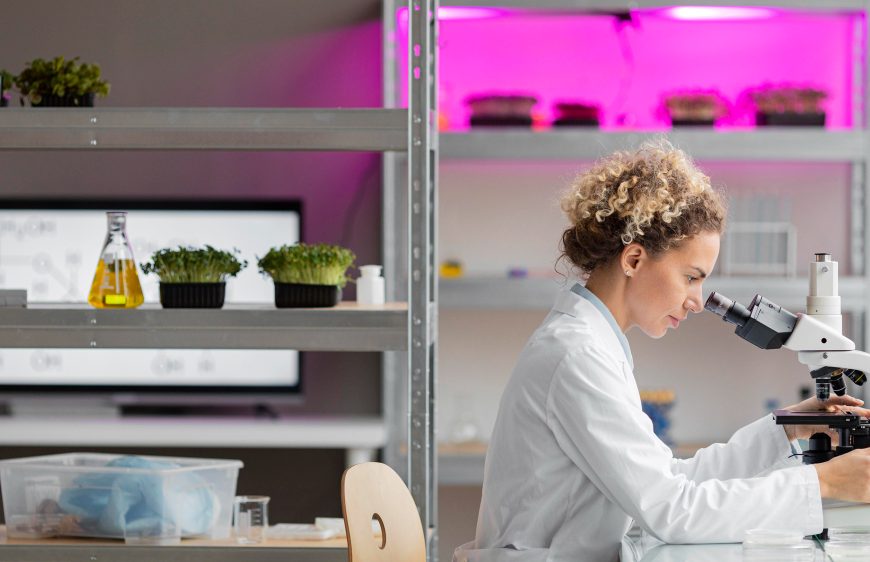The Coming Wave of Biotech Startups: A Paradigm Shift in Innovation
Biotechnology has always been an industry positioned at the intersection of imagination and science. Today, however, it is stepping into an era that feels less like incremental improvement and more like a complete redefinition of what is possible. Startups in gene editing, synthetic biology, precision medicine, and AI-driven drug discovery are not just nudging progress forward—they are accelerating us toward a tipping point where fields converge in ways that will redefine healthcare, agriculture, sustainability, and even human longevity.
The next decade will not simply belong to those who invent new biological tools, but to those who can scale them responsibly, navigate complex regulatory terrains, and anticipate the societal impacts of what they unleash. The forces driving this future are varied and deeply interconnected: rapid advances in genome engineering, the rise of machine learning in biology, global pressure to decarbonize, patient demand for personalized care, and the shifting investment landscape that increasingly favors high-risk, high-reward ventures. Together, these currents create fertile ground for startups to lead disruptive breakthroughs that once seemed reserved for science fiction.
Yet, the real story is not only about technology. It is about convergence. The startups that thrive will be those that fuse biology, computation, and engineering into platforms that can evolve quickly, adapt to multiple industries, and meet the dual test of commercial viability and societal acceptance. Understanding how science, investment, and policy align—or clash—will determine which ventures ultimately shape the world of 2035 and beyond.
Navigating the Landscape of the Next Decade in Biotechnology
Personalized Therapeutics and Precision Medicine
A central trend for biotech startups is the push toward individualized healthcare. Patients are moving away from “one-size-fits-all” treatments and demanding therapies tuned to their genetics, lifestyle, and environment. Startups leveraging advanced diagnostics, CRISPR-based editing platforms, and single-cell sequencing are building pipelines that could one day ensure that therapies are not just effective on a population level, but optimized for each individual. The challenge ahead will be cost and accessibility—highly tailored treatments risk deepening inequities unless business models and healthcare policy evolve in parallel.
CRISPR and Next-Generation Gene Editing
CRISPR-Cas technologies have already demonstrated transformative potential, but their full impact is still on the horizon. In the coming decade, we will likely see startups creating CRISPR solutions not only for treating rare genetic disorders but also for applications in agriculture—developing climate-resilient crops, reducing reliance on pesticides, and improving food nutritional profiles. The startups that succeed will need to marry scientific capability with responsible governance, given the ethical debates that still swirl around human germline editing and ecological impacts of engineered organisms.
AI-Augmented R&D Pipelines
Artificial intelligence is quickly becoming the engine of modern biotech discovery. The traditional model of spending years and billions of dollars to develop a single therapeutic is giving way to AI-driven platforms that can identify drug candidates, simulate protein folding, and optimize molecular designs in weeks or months rather than decades. By partnering computational models with wet-lab automation, startups are radically compressing the timelines of scientific discovery. Still, questions remain about validation, safety, and regulatory guidance, underscoring the need for close collaboration between AI engineers, experimental scientists, and governing bodies.
Advanced Cell and Gene Therapies
Cell-based immunotherapies and regenerative approaches are poised to move from experimental to mainstream. CAR-T therapies and stem cell interventions are expanding beyond oncology into areas such as autoimmune conditions, cardiovascular health, and neurodegenerative diseases. For startups, the challenge is not just in proving efficacy, but in scaling manufacturing to make therapies widely available without staggering costs. Bioengineered “universal donor cells” and platform-based therapeutic design could be key strategies.
Biofabrication and Sustainable Biomanufacturing
Biotechnology is no longer confined to medicine—it is increasingly central to sustainability. Synthetic biology startups are engineering microbes to produce materials such as bioplastics, alternative proteins, and fuels. Biomanufacturing holds the promise of reducing reliance on petrochemicals and radically cutting carbon footprints. Startups in this space must balance scaling operations with sustainability promises, ensuring that new technologies outperform—and outcompete—traditional industrial processes.
Engineered Microbes and Environmental Biotech
Beyond materials, engineered microorganisms may soon become frontline tools for environmental resilience. Startups are working on microbes that capture atmospheric carbon, restore soil health, or neutralize industrial pollutants. As climate change intensifies, the demand for such biotechnological interventions will grow. The startups that succeed will be those that integrate ecological considerations into their design strategies and engage policymakers early to establish frameworks for safe deployment.
Strategic Implications: Scaling, Regulation, and Public Trust
If the science defines what is possible, regulation and policy determine what is permissible. The next decade will hinge on how governments and global organizations respond to the exponential rise of biotech capabilities. Accelerated regulatory pathways, adaptive trial designs, and harmonized international standards could enable startups to scale more quickly. Conversely, misaligned regulation could stifle innovation and create uneven markets.
Equally critical will be public perception. Biotech startups must recognize that scientific brilliance alone is insufficient. Without transparency, ethical stewardship, and clear communication, public resistance could derail even the most promising advances. A biotech future built only on profitability risks backlash, whereas one built on equitable access and long-term societal benefit can establish trust.
The Ecosystem of the Future
The landscape ahead suggests that the biotech startups defining the next decade will not resemble the garage-born software companies of the past. They will require massive infrastructure investments, close partnerships with research institutions, cross-disciplinary teams blending AI engineers with biologists, and investors willing to navigate long and complex commercialization paths.
Collaboration will be as important as competition. An ecosystem mindset—where startups partner with pharma, academia, governments, and global health organizations—will be key to delivering breakthroughs at scale. This collaborative spirit can also help address ethical concerns, ensure market access in lower-income regions, and create global awareness of how biotechnology serves humanity.
Conclusion: The Convergence Era
The next decade in biotechnology will be defined less by isolated discoveries and more by the convergence of disciplines, forces, and strategic visions. Personalized medicine, CRISPR advancements, sustainable bio-manufacturing, AI-driven discovery, and engineered organisms are not speculative ideas—they are practical frontiers demanding immediate attention.
Startups that succeed will be those that balance scientific daring with responsibility, speed with safety, and breakthrough potential with long-term sustainability. They will not merely disrupt markets; they will redefine them. In doing so, biotechnology will move from a niche field to a central driver of human progress—shaping healthcare, food security, and environmental resilience in ways that will determine the future of societies around the globe.
What once felt like speculative science fiction is now an attainable trajectory, powered by startups agile enough to transform ambition into reality. The decisive question is not whether biotechnology will reshape our world, but which visionary ventures will lead the way into a profoundly different future.
👉 Would you like me to make a condensed “executive summary” version of this article too, so it’s easier for startup founders or investors to skim the key points?












